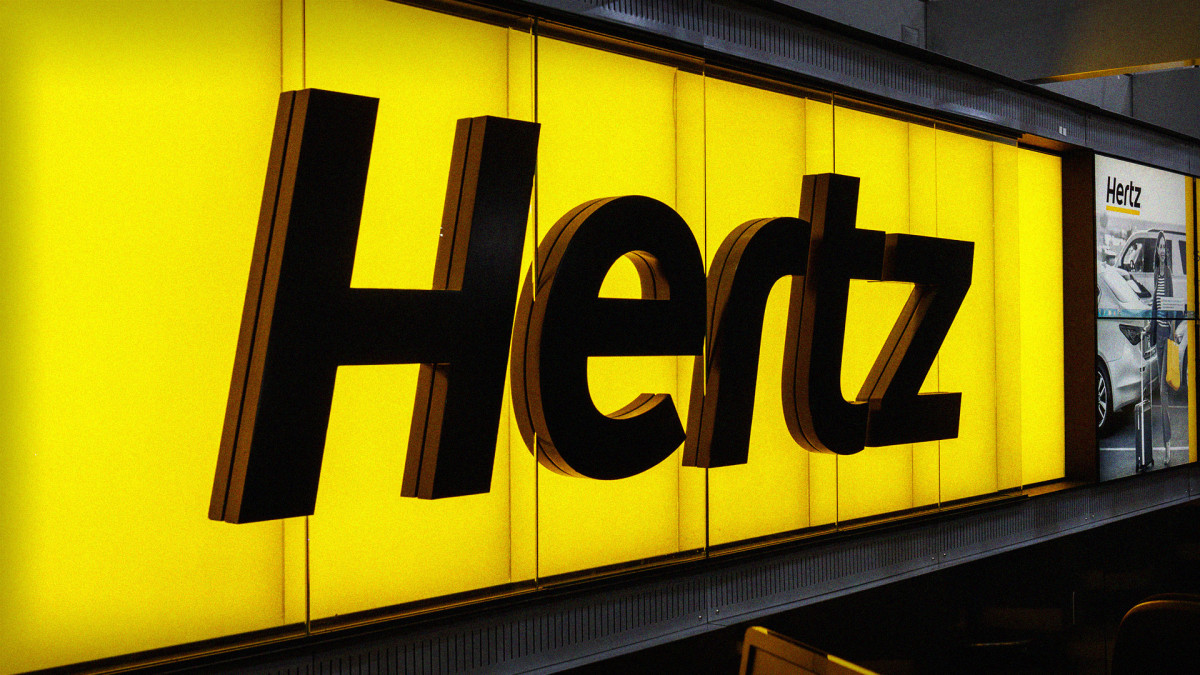
Et tu, Hertz (HTZ) -)?
These have been trying times for electric vehicles.
It doesn't seem very long ago that the major automakers were announcing plans to shift to electrification and usher in a cleaner and greener future.
DON'T MISS: Ford stock wobbles as company puts a dollar figure on UAW auto strikes
But now it looks like the electric vehicle sector has been hitting a few speed bumps.
Ford (F) -) Motor Co. recently said it was postponing about $12 billion in planned spending on new EV manufacturing capacity, including a planned second battery plant at a new campus in Kentucky.
The automaker withdrew its full-year results forecast on Oct. 26 due to "uncertainty" over the pending ratification of its deal with the United Auto Workers (UAW) union, and warned of continued pressure on electric vehicles, Reuters reported.
General Motors (GM) -) and Honda recently scrubbed a plan to jointly develop affordable electric vehicles the companies, just a year after they agreed to work together in the $5 billion project.
GM is also scrapping a self-imposed target to build 400,000 electric vehicles by mid-2024.
CEO Mary Barra said GM was "taking immediate steps to enhance the profitability of our EV portfolio and adjust to slowing near-term growth."
In addition, Cruise, GM's autonomous vehicle company, said it was suspending its robotaxi operations in order to examine its processes and systems.
The California Department of Motor Vehicles recently announced that it was revoking GM’s license to operate its driverless Cruise vehicles.
EV sales still increasing
And Tesla (TSLA) -), the world's biggest electric vehicle maker, recently missed Wall Street's third-quarter earnings expectations, and fell short of analysts' delivery forecasts.
Wedbush analyst Dan Ives brought his Tesla price target down from $350 to $310 and described the company’s conference call as a “mini disaster.”
Now Hertz, one of the largest rental car companies on the planet, is bearing some bad news for the EV sector.
CEO Stephen Scherr said on the company’s third-quarter earnings update that “our in-fleeting of EVs will be slower than our prior expectations,” according to CNBC.
The company reported lower than expected margins for the period ending September 2023, and the CEO said EV repairs were one challenge.
“Our direct operating expenses remained controlled in the quarter as they grew with transaction volume," he said. "On a unit basis, we achieved productivity gains across most categories of auto. The exception remained vehicle damage costs, particularly those on our EVs.”
Hertz said that about 80% of the battery electric cars in its fleet are Teslas today. About 11% of Hertz’s entire fleet is comprised of electric cars now, meaning the company has roughly 35,000 Teslas in its fleet now, far short of the 100,000 Tesla vehicles Hertz said it was ordering from Tesla.
So what's happening here? Have EVs run out of juice or are these just temporary setbacks?
Willett Kempton, a professor of electrical and computer engineering at the University of Delaware, thinks the sector current challenges aren't going to stop EVs in their tracks.
Electric vehicle sales volumes set another record in the third quarter, as total sales of battery-powered vehicles jumped past 300,000 for the first time in the U.S. market, according to Cox Automotive.
EV sales accounted for 7.9% of total industry sales in the quarter, Cox said, a record and up from 6.1% a year ago and 7.2% in the second quarter.
Complicated picture
"if you look at the year-by-year purchase of electric vehicles, it's a very steep ramp up," Kempton said. "The vehicles are getting less expensive right now. There's very good federal subsidy and a bunch of states have subsidies, which help speed up the markets."
Kempton said people are getting more accustomed to electric vehicles and finding out that "they're not so strange after all." He noted that the UAW strike was a big question mark, adding that "of course, there's going to be some bugs," as automakers move into something they haven't done before.
"I don't see anything that's causing a change in the long term trend, which is that steep growth curve upward with more new car sales every quarter and especially every year," he said.
Prof. Giorgio Rizzoni, director the Ohio State University Center for Automotive Research, believes the issue with electric vehicles is a bit complicated.
He noted that there are long wait times for transformers, while nickel and cobalt for electric batteries are becoming increasingly expensive. There is also a lack of enthusiasm from some consumers, particularly in rural areas.
"I think what's happening now is that the auto companies are realizing that it's an expensive business and the more demand there is for battery materials, the more expensive it gets," he said.
Rizzoni said he does not believe electric vehicles will go beyond 50% of the market, despite some predictions that call for the extinction of the internal combustion engine in the near future.
"I think the internal combustion engine is here to stay for much longer than the public conversations would lead you to believe," he said.
Rizzoni said plug-in hybrids, which use both a gasoline engine and an electric motor, might take up a larger market share in the future.
"It's a compromise," he said. "You have to figure out which compromise works best to meet consumer needs."
Get investment guidance from trusted portfolio managers without the management fees. Sign up for Action Alerts PLUS now.







